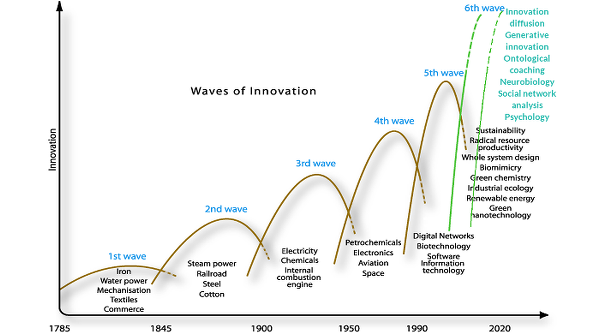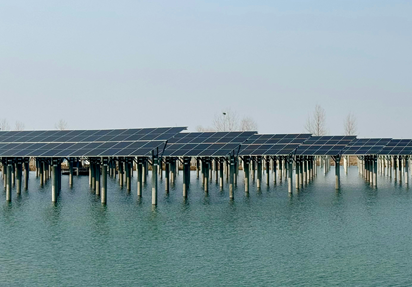Leigh Baker | June 14, 2023
You can’t solve a problem from the mindset that created it…
Einstein
And it’s not that we don’t know what to do or how to fix things. It’s more that we have some seriously out-of-date Theories of Change.
The real “inconvenient truth” is that we’re an inconvenient SPECIES – we’re biologically evolved to maintain the social status quo way beyond it’s usefulness.
Industrial design is a human process – with human limitations
Until the 1970s, industrial design largely designed from a mindset of
1-way extract/emit/exploit supply chains that:
- Sought to maximise process efficiency.
- Assumed infinite ecosystem resources and waste tolerance.
- Concentrated on mechanical and chemical engineering technologies.
- Only counted the extraction cost of resources (social and environmental).
This mindset was also predicated on concepts such as:
- Cost accounting.
- Economically rational human behaviour.
Today’s urgent reality is that this “industrial era” design mindset now threatens at least:
- Nine planetary boundaries.
- Twelve social foundations.
And the human systems we call “business” and “the economy” are now faced with this simple equation:
No working ecosystem + No functioning community = No business + No economy
Global billionaires consulting with survival experts on how to protect their family enclave from global environmental catastrophe are increasingly being told “it’s not actually feasible” and “it would be a whole lot cheaper to prevent problems today”.
Think broader…
You can’t fix a linear economy with linear, process-level solutions.
You can’t fix high-energy, poisonous production processes with minimisation, regulation and control.
You need a new design paradigm that changes the goals of the game. The good news is that we have a wealth of design solutions, including:
- Circular Economy
- Biomimicry
- Project Drawdown
- Cradle to Cradle Product Innovation
- Systemic Design
- Blue Economy
- The Natural Step
- Doughnut Economics
The challenge isn’t to “find a solution” any more – it’s to choose the best solution for the circumstance.
The challenge isn’t to “fix a toxic product” – it’s to create regenerative systems.
The good news for today’s business is that – done strategically and effectively – smarter regenerative strategies deliver bottom line results in innovation, productivity and efficiency gains.
Legislation doesn’t deliver disruptive economic innovation at a global scale. That’s not how we got cars, air travel or the digital economy.
“Lobbying national government to control global corporations and local business” is top-down 20th century myth. (Yes, we need better policy support AND we need a ;eve; disruptive innovation at a global scale that’s beyond most national governments.)
So we need to think broader – to design community and ecosystem regeneration into business from the ground up. That way we don’t end up doing endless expensive, awkward retro-fits and fighting unexpected consequences.
Act deeper…
You can’t solve human behaviour issues with logic and control. Especially not group behaviours.
You also can’t build regenerative systems by treating individual symptoms as though they were stand-alone problems – you need to do deep diagnosis.
You need to seek out the root cause of problems and the shifts required to resolve them – permanently. You need to identify and address the personal and social concerns that retard the adaptation of human systems to new realities.
Human social systems are biologically evolved to maintain their status quo UNTIL they’re made a better offer.
Action plans that assume “sensible, rational, logical, ordered human behaviour” are doomed to the endless effort of doing change the hard way.
We need to act deeper – to think in social systems, to act inclusively and to design around place and purpose.








